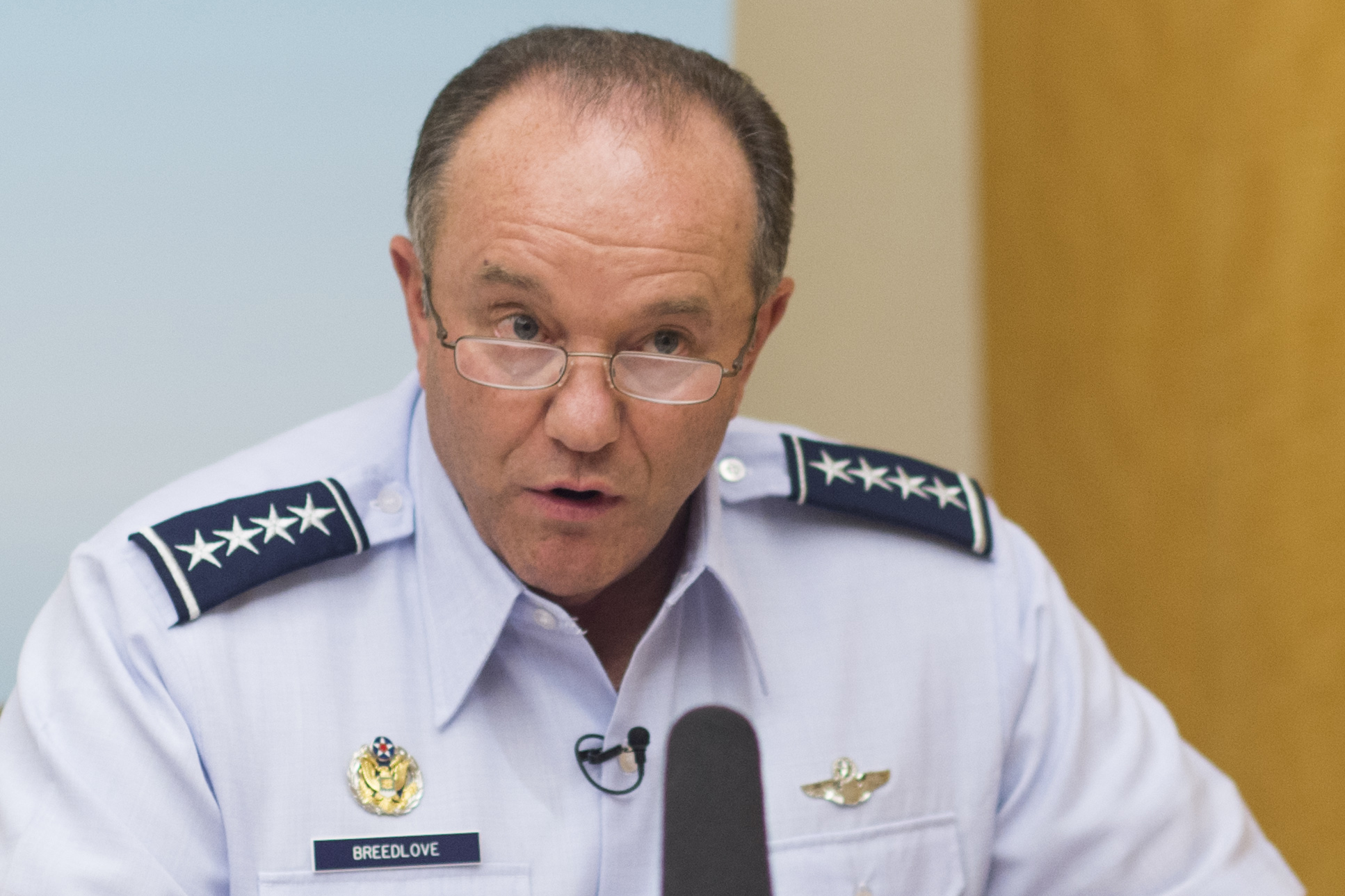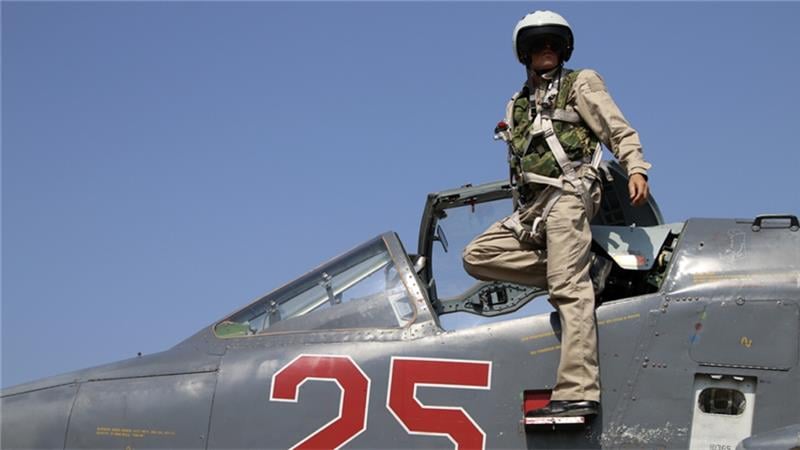
The U.S. senior commander in Europe warned the Senate Armed Services Committee that the Syrian regime’s continued use of barrel bombs and Russia’s use of indiscriminate strikes in backing President Bashar al Assad is exacerbating the European immigration crisis.
Even after an agreement to a cessation of fighting between the Syrian regime and moderate opposition groups “we have not really seen a change in the type of sorties being flown” by the Russians, U.S. European Command commander Air Force Gen. Philip Breedlove said.
“We need to see how [the ceasefire] works [because] actions speak louder than words,” he said.
But, “What we have seen is an intense flow [of refugees] into the neighboring countries” such as Jordan and Turkey, as well as Europe, that is continuing even after the ceasefire, Breedlove said later in the hearing.
Breedlove said, “What we have seen growing” in the flow of refugees fleeing Syria and migrants leaving depressed countries in the Middle East and North Africa” are “criminals, terrorists and [returning] foreign fighters” coming into Europe.
“I think we need to be careful about all these flows of refugees” into the West.
Asked if that also posed a threat to the United States, he said, “I would take Daesh [the Arabic acronym for the Islamic State in Iraq and Syria (ISIS or ISIL)] at their word” that they want to export the caliphate’s control from its base in Iraq and Syria to the West as a whole.
In his opening statement, he said ISIS was spreading like a cancer through unstable and collapsed states.
The refugee flow “could be that source,” Breedlove said. “I do believe the Europeans understand and are addressing that issue.” He added that they realize that terrorist threats can quickly cross a border.
Regarding a resurgent Russia, he told the committee Moscow “had chosen to be an adversary,” in part “to re-establish a leading role” for itself on the world stage.

Breedlove said Russia now “dials up and down the pressure” along its borders—snap exercises (including in the Arctic where they mask large re-deployments of forces), sending more military aid to separatists in Ukraine, flying long-range bombers far from their home bases and recapitalizing its military according to its own plan.
Speaking about Ukraine as an example of Russian muscle-flexing along its borders, he said the number of attacks are up—450 incidents last week, with heavier weapons in places that were quiet.
He added that this activity in Ukraine was “nothing like a major military muscle movement” to break the latest agreement reached in Minsk to curb fighting in the eastern region.
“We should not take any tools off the plate” in aiding the Kiev government. “I’ve made my recommendations [to the Obama administration] along those lines.”
Committee chairman Sen. John McCain (R-AZ) said the situation in Ukraine is “the same movie we’ve been watching . . . for two years” despite several broken agreements to end fighting. Russian President Vladimir Putin has learned “military adventurism pays.”
Breedlove said sanctions, the decline of oil prices and economic stagnation have put pressure on Russia but in an open hearing declined to go further as to what degree those changes affect Moscow’s military modernization program and its willingness to deploy forces.
He did say that despite shortages in intelligence, surveillance and reconnaissance assets in his command the services have helped close a gap in being able to analyze intelligence and being more predictive “to solve a problem” before it becomes a crisis.
Adding to the pressure he thinks, “submarines, like other assets [are] low density, high demand” resources that other commands call upon.
Breedlove said 16 NATO nations “have arrested the decline” in defense spending and are exceeding the alliance’s target of spending at least 2 percent of gross domestic product on security. “Seven have very credible plans over a very credible amount of time” to reach the target.
He added that 20 percent of that increased spending should be put toward recapitalization of equipment and modernization, not simply personnel costs.
In likely what will be his last appearance before the committee, Breedlove said the European Reassurance Initiative is closing some shortfalls in forward presence of personnel, fully funded rotational forces, prepositioning equipment, rapid reinforcing exercises and training of alliance militaries.
The initiative is paid for out of annual emergency defense spending bills and not part of the Defense Department’s base budget.
“NATO needs to bring [the] entire force to readiness and responsiveness” and that includes improving airfields, railheads and understanding a new security environment of anti-access/area denial capabilities in the Russian armed forces.





